Death at the toilet wall: what was the end of the Romanian dictator Nicolae Ceausescu
Categories: Celebrities | Europe | History
By Pictolic https://pictolic.com/article/death-at-the-toilet-wall-what-was-the-end-of-the-romanian-dictator-nicolae-ceausescu.htmlSome dictators manage to escape the reckoning and live out their lives peacefully. But this does not always happen. The leader of the Romanian Communist Party and concurrently the head of Romania, Nicolae Ceausescu, was shot along with his wife Elena by the verdict of the tribunal. This happened on December 25, 1989 and came as a surprise to many. Only a few days separated the execution of the dictator from "popular love" and unlimited power.
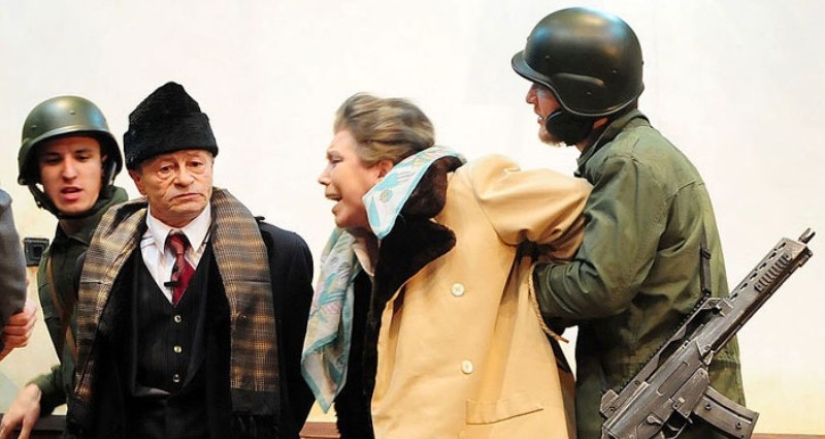
Nicolae Ceausescu was a man with an exorbitant conceit. Mikhail Gorbachev, who held the position of General Secretary of the Central Committee of the CPSU in the 80s, knew his Romanian colleague well. He spoke of him as an arrogant and incredibly vain man. Ceausescu adored rallies during which people held his portraits in their hands and shouted slogans of praise.
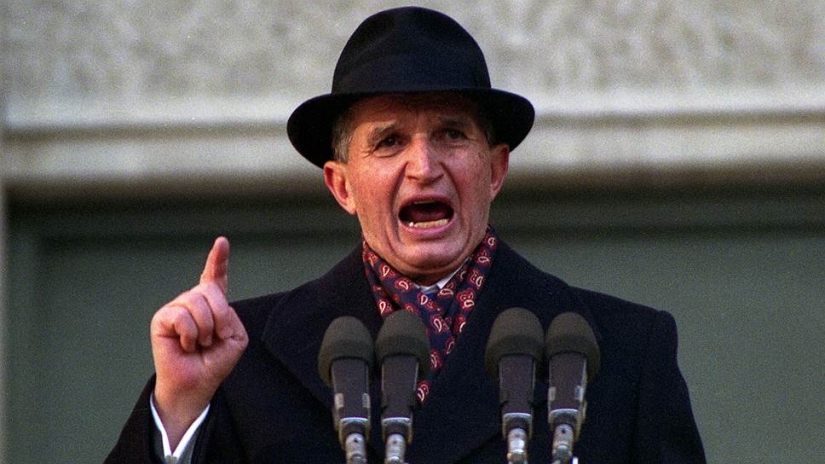
At the same time, the Romanians themselves lived in constant fear of the security agencies. The state shamelessly interfered in all spheres of citizens' lives, including the most intimate ones. Gorbachev described what was happening in Romania in this way:
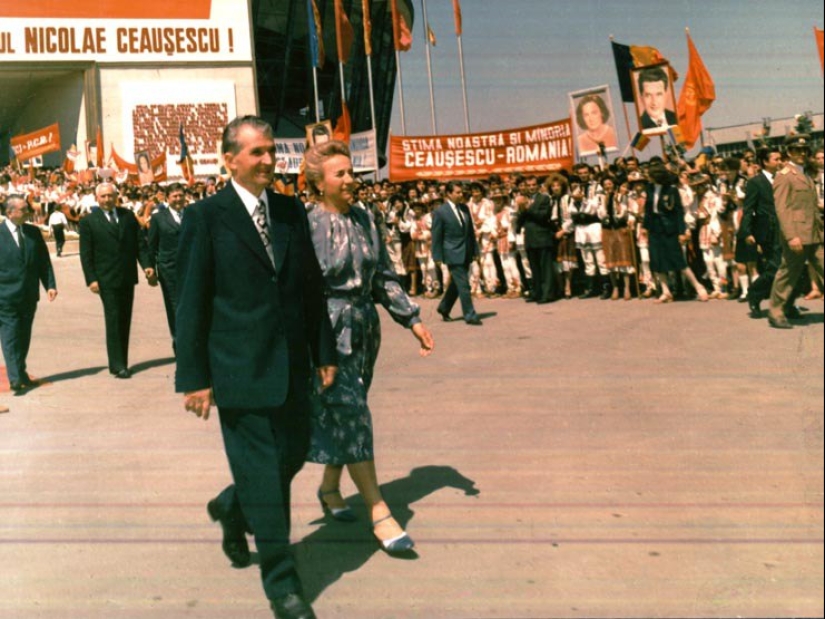
The slightest suspicion of free-thinking or disagreement with the regime was immediately punished. Those who put Ceausescu's leadership under the slightest threat with their authority and popularity also fell into the millstones of repression. These were the dictator's party members, the military, representatives of the creative and scientific intelligentsia. Mikhail Gorbachev said that in personal conversations, the Romanian leader expressed dissatisfaction with democratic transformations and decried criticism of the personality cult of Joseph Stalin.
In the fall of 1989, in the city of Timisoara, local authorities subjected the priest Laszlo Tekesh to house arrest, and then tried to expel him from the city. He was a Magyar and defended the rights of the national minority, which officials did not like. His fellow countrymen stood up for the activist, and a little later Romanians began to come to the house of Tekesh. As a result, a large protest rally was formed, the participants of which did not respond to the orders of the police to disperse.
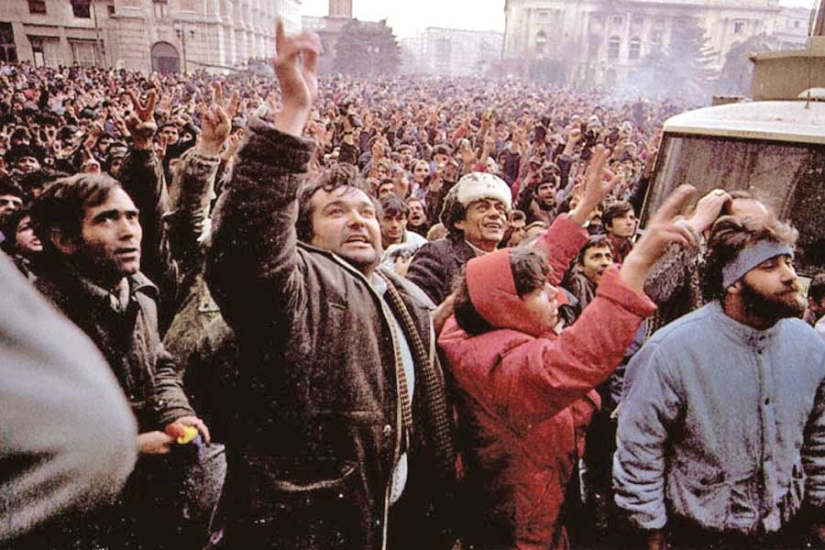
The popular unrest has dragged on. On December 17, 1989 Ceausescu called an emergency meeting of the politburo. The agenda of the meeting was one — riots in Timisoara. It all ended with the dictator making the decision himself and it was terrible. Ceausescu ordered to shoot at the protesters. Strangely enough, the members of the politburo did not support the leader and only promised to take all possible measures.
On the same day Ceausescu flew on an official visit to Iran. But already on December 20, circumstances forced him to return to Bucharest. The situation in Timisoara was taking a serious turn and unrest had already spread to neighboring cities. The leader made an address to the people on television, in which he blamed foreign intelligence services for the turmoil.
A rally in support of Ceausescu and the party was scheduled for December 21 in the capital. Citizens loyal to the government with portraits of the leader and his wife Elena were supposed to gather on the Palace Square. It all started as planned — a crowd gathered, chanting slogans in support of the regime. Everything changed when Ceausescu went out on the balcony to give a speech.
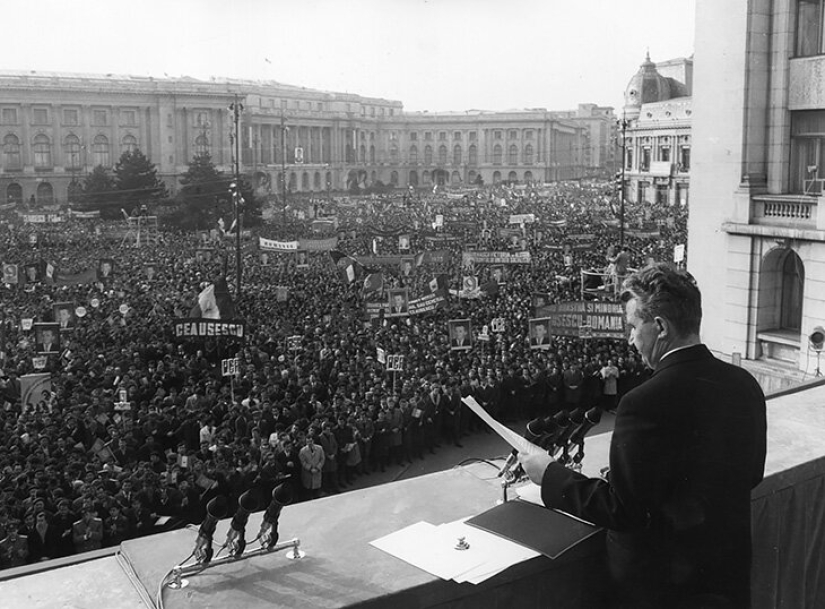
At that moment, someone in the crowd threw a firecracker and panic began. And then the audience, unexpectedly, began to trample on the portraits of the leader and shout insults at him. Shouts of "Down with the tyrant" were heard and Ceausescu, shocked by the reception, retreated from the balcony. The rally, contrary to expectations, did not disperse. By evening, troops and tanks appeared on the Palace Square. A bloody massacre began.
The Romanian Revolution was the bloodiest among all that shook Eastern Europe during the liquidation of socialism. In clashes with members of the Securitate state security body and troops, 1,100 people were killed and 1,400 more were injured. But even such victims could not stop the rebels, who swept away the ranks of soldiers, beat secret police agents and threw themselves under tanks.
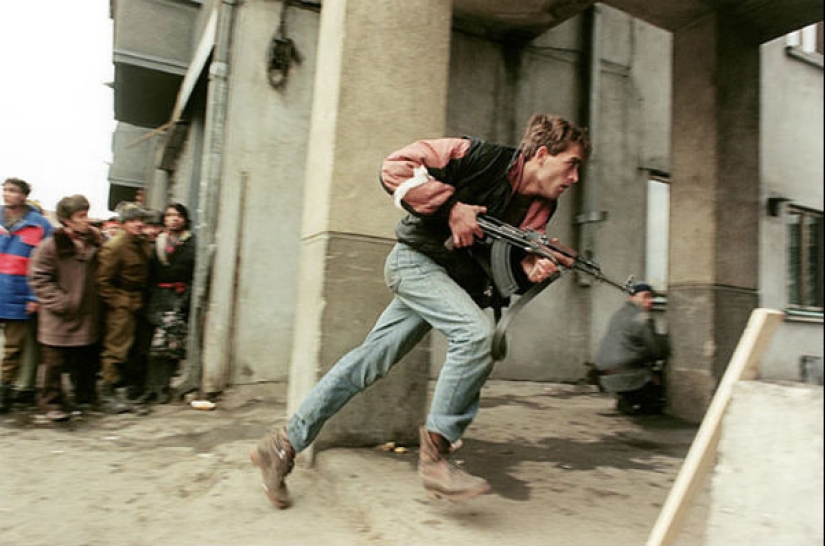
Already on December 22, it became clear that the life of the dictator and his wife was in danger and the crowd was about to seize their palace. Nicolae and Elena Ceausescu was forced to flee the capital by private helicopter. At this time, an important event occurred — the army switched sides with the rebels. There was no escape for the former leader in the country, and the helicopter headed for the Romanian border. But the tyrant was not allowed to leave the country, and the fugitives began to look for other ways of escape.
Two secret police officers accompanying Ceausescu took a car from a worker. The deposed dictator and his entourage began to travel around the country in search of a safe place. As a result, tired and scared, they asked for shelter in one of the houses in the countryside. But the owners turned out to be supporters of the revolution and simply locked the Ceausescu couple in one of the rooms. There they were arrested by the soldiers.
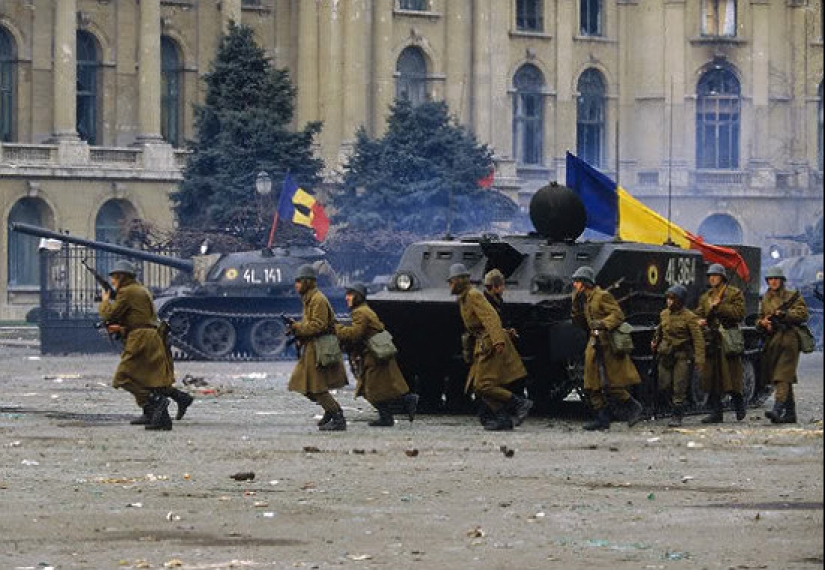
Late in the evening on December 22 , Nikolai and Elena Ceausescu was taken to the police station of the city of Targoviste. From there, they were escorted by the military to the barracks of the local garrison. Major Ion Maresh deceived the detainees. He calmed them down and informed them that he had arrived to hide them in a safe place. So, accustomed to luxury, Nicolae and Elena found themselves locked in a cold room with peeling walls, where they had to spend their last two days.
On December 25, 1989, the future Minister of Defense Victor Stanculescu, General Virgil Magureanu and the future Deputy Prime Minister of the country Jelu Voikan Voiculescu arrived at the Targoviste garrison. A group of metropolitan lawyers was with them. They promptly organized a trial of the dictator, as they were afraid that his supporters would beat off those arrested. The chairman of the military tribunal was General Georgica Popa, and an experienced lawyer Mika Teodorescu was appointed as a defender.
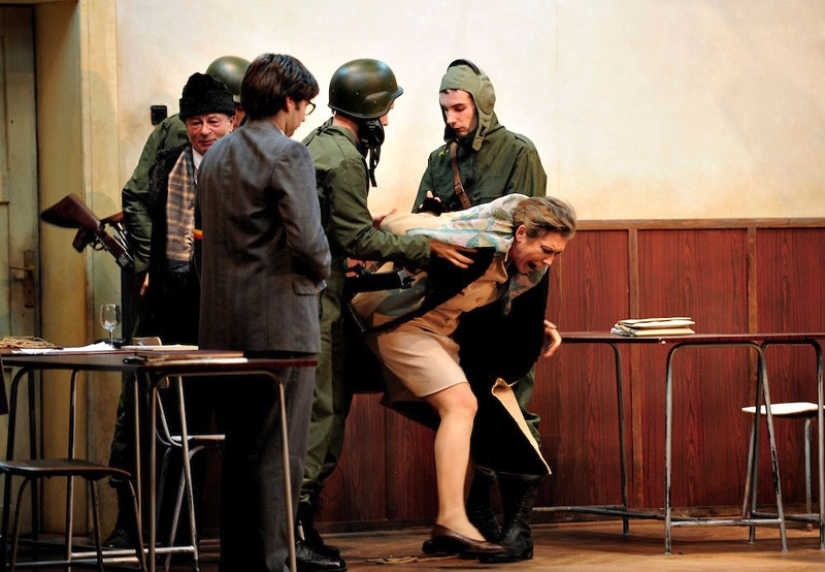
Ceausescu's spouses were charged with genocide of their own people, the collapse of the country's economy, illegal enrichment and many other state crimes. Teodorescu's lawyer could only counter the prosecution with the assumption that the dictator and his wife were mentally ill. But Nicolae and Elena themselves refuted this, disarming the defense. The defendants behaved arrogantly — they could not even imagine how everything would end for them.
The trial lasted only a couple of hours and ended with Ceausescu being found guilty on all counts. Immediately after the trial , Nicolae and Elena was taken to the courtyard of the barracks, put against the wall of the soldiers' toilet and shot with machine guns. On the way to the place of execution, the dictator sang "Internationale" and shouted communist slogans, while his wife sobbed. She asked one of the soldiers: "What are you doing to us? After all, I was your mother." He was surprised by this and immediately reminded her of the thousands of victims of the regime.
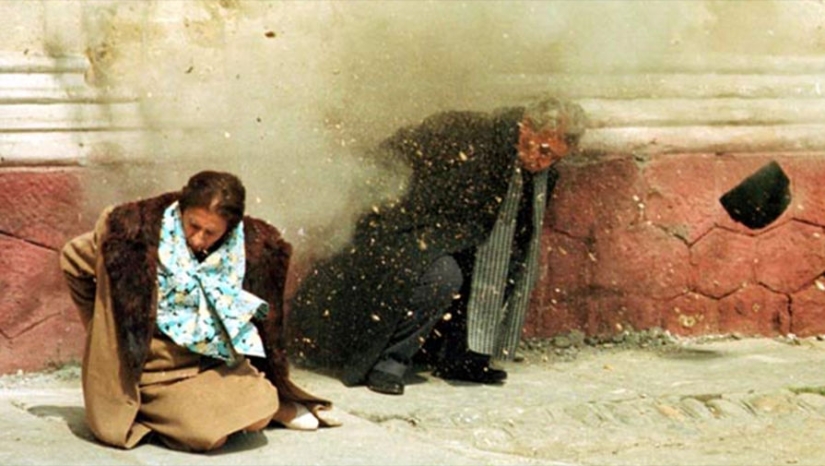
The bodies of Nicolae and Elena Ceausescu were taken out of town and buried in an unmarked grave. Participants in the trial and members of the firing squad have received anonymous threats for many years. But Romania had already made its choice and a bunch of tyranny lovers couldn't do anything about it. So ended the life of another dictator and tormentor of his own people, who for many years imagined himself to be God and considered invulnerable.
Recent articles

It's high time to admit that this whole hipster idea has gone too far. The concept has become so popular that even restaurants have ...

There is a perception that people only use 10% of their brain potential. But the heroes of our review, apparently, found a way to ...

New Year's is a time to surprise and delight loved ones not only with gifts but also with a unique presentation of the holiday ...